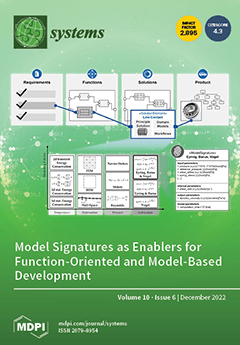Introduction: Worldwide health systems are being faced with unprecedented COVID-19-related challenges, ranging from the problems of a novel condition and a shortage of personal protective equipment to frequently changing medical guidelines. Many institutions were forced to innovate and many hospitals, as well as
[...] Read more.
Introduction: Worldwide health systems are being faced with unprecedented COVID-19-related challenges, ranging from the problems of a novel condition and a shortage of personal protective equipment to frequently changing medical guidelines. Many institutions were forced to innovate and many hospitals, as well as telehealth providers, set up online forward triage tools (OFTTs). Using an OFTT before visiting the emergency department or a doctor’s practice became common practice. A policy can be defined as what an institution or government chooses to do or not to do. An OFTT, in this case, has become both a policy and a practice. Methods: The study was part of a broader multiphase sequential explanatory design. First, an online survey was carried out using a questionnaire to
n = 176 patients who consented during OFTT usage. Descriptive analysis was carried out to identify who used the tool, for what purpose, and if the participant followed the recommendations. The quantitative results shaped the interview guide’s development. Second, in-depth interviews were held with a purposeful sample of
n = 19, selected from the OFTT users who had consented to a further qualitative study. The qualitative findings were meant to explain the quantitative results. Third, in-depth interviews were held with healthcare providers and authorities (
n = 5) that were privy to the tool. Framework analysis was adopted using the five-factor framework as a lens with which to analyze the qualitative data only. Results: The five-factor framework proved useful in identifying gaps that affected the utility of the COVID-19 OFTT. The identified gaps could fit and be represented by five factors: primary, secondary, tertiary, and extraneous factors, along with a lack of systems thinking. Conclusion: A theory or framework provides a road map to systematically identify those factors affecting policy implementation. Knowing how and why policy practice gaps come about in a COVID-19 OFFT context facilitates better future OFTTs. The framework in this study, although developed in a universal health coverage (UHC) context in South Africa, proved useful in a telehealth context in Switzerland, in Europe. The importance of systems thinking in developing digital tools cannot be overemphasized.
Full article





